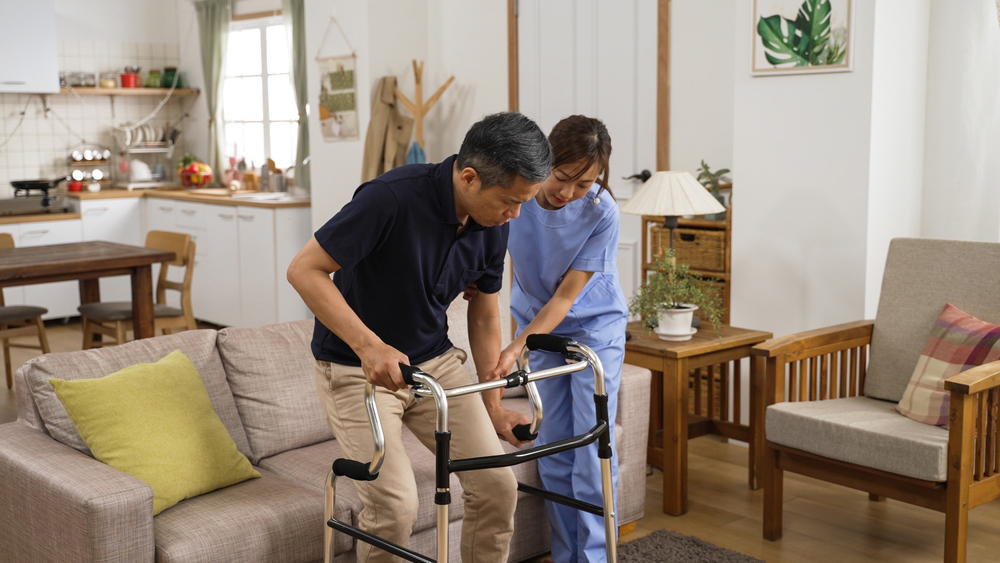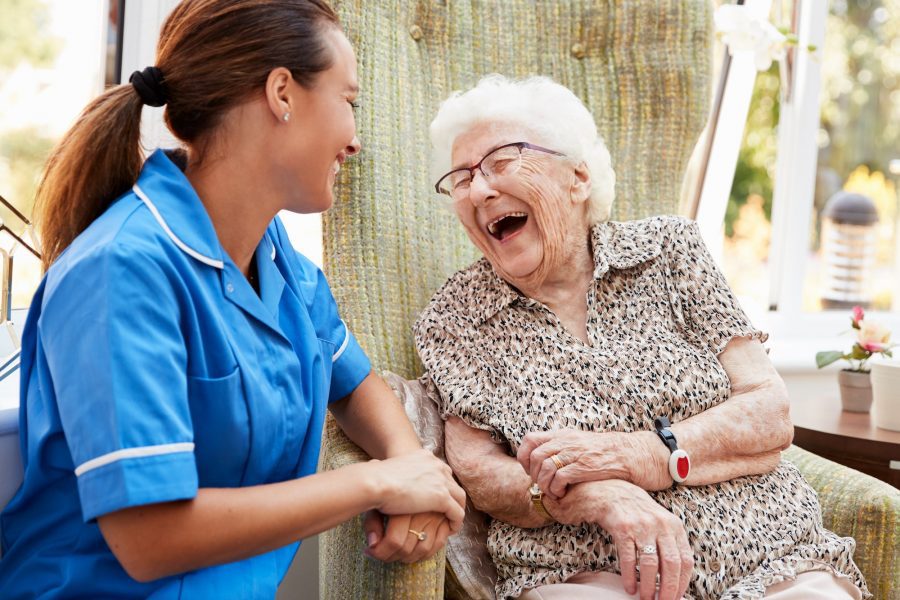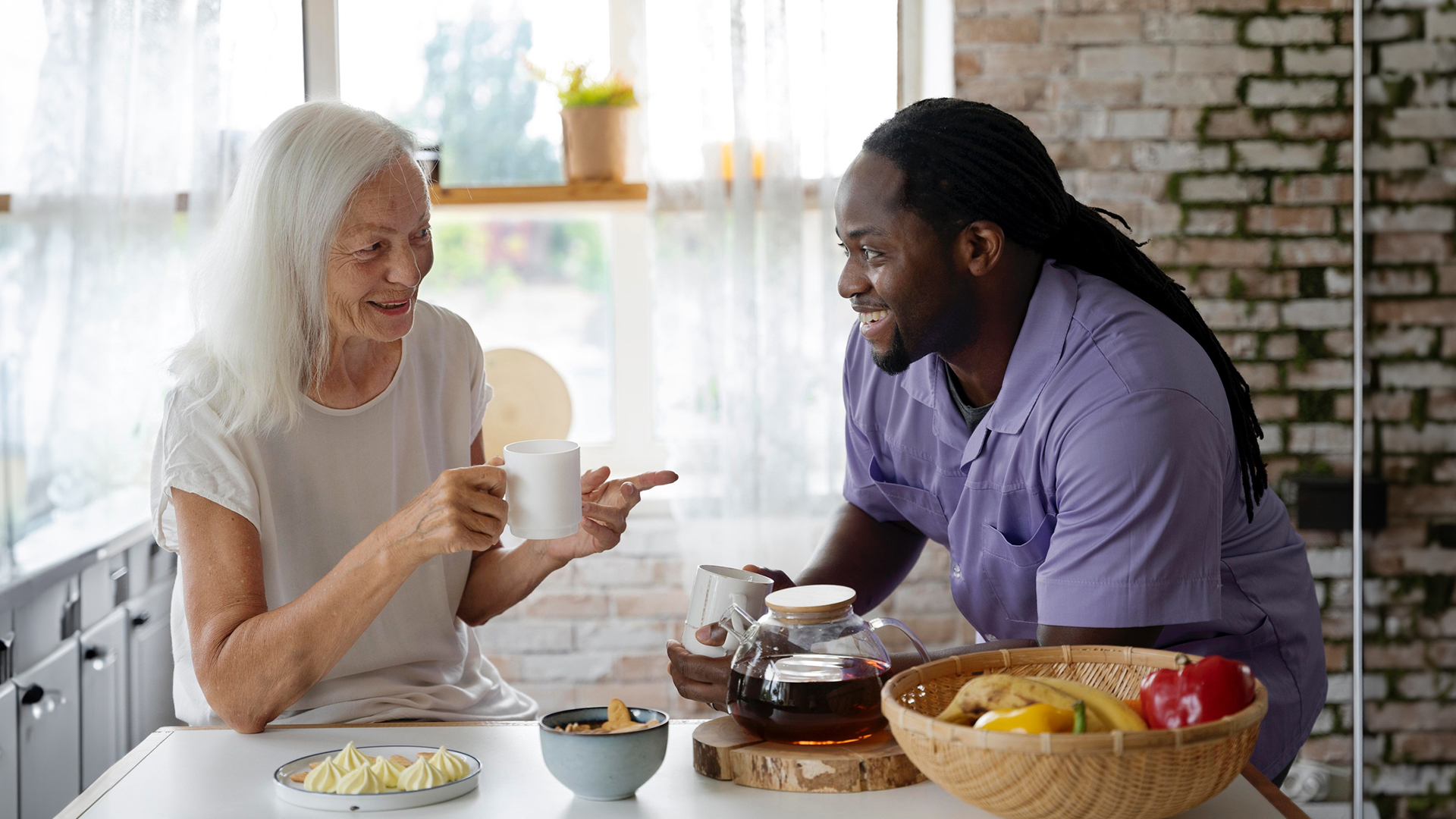If you take on the responsibility of caring for a loved one after a stroke, it’s essential to have realistic expectations. When recovering from a stroke, people require compassion and patience to manage medical complications as they arise. Here are our top tips for in-home stroke recovery.
1. Encourage Frequent Movement
Many stroke patients struggle with motor impairments, and regular movement is the best remedy for these. You can help your loved one heal by encouraging them to do daily rehabilitation exercises as prescribed by a doctor or physical therapist.
2. Be Helpful, Not Overbearing
For continued improvement during stroke recovery, people need to do tasks independently. If you see your loved one having trouble with something, only help if they ask you to. Don’t jump in and take over for them every time.
3. Modify Living Space
Stroke patients are at a higher risk of falls due to balance problems or one-sided visual neglect. You can improve your loved one’s safety with modifications like clearing clutter and installing grab bars and non-slip mats. Talk to an occupational therapist for additional recommendations, and immediately seek medical attention if a fall occurs.
4. Provide Positive Support
Stroke recovery can involve many emotional ups and downs. Sudden outbursts of crying or laughing could signify pseudobulbar affect, which is treatable with medication. Your loved one may also struggle with mental health conditions like depression, anxiety, or grief. During this challenging time, be supportive and maintain a positive attitude.
5. Don’t Get Discouraged
During the early stages of stroke recovery, many patients make rapid progress. However, these improvements may slow or stall after a few months. This plateau doesn’t mean your loved one’s healing has stopped in its tracks. Thanks to brain plasticity, continued advancements are possible for a lifetime after a stroke. Don’t get disheartened if results slow down – stroke recovery is not linear. Instead, use it as motivation to renew your loved one’s rehabilitation efforts.
6. Stay Alert for Changes
Sometimes, new stroke side effects appear months after discharge. If you notice anything unusual or different in your loved one, be sure to consult with their doctor or neurologist as soon as possible.
7. Look After Yourself
The responsibilities of caring for a loved one during stroke recovery can quickly lead to burnout if you neglect your self-care. Take daily breaks to give yourself a chance to recharge. You can also ask for help from other family members or join a support group of fellow stroke caregivers.
Does Your Family Need Professional Stroke Recovery Support?
Having an experienced home health service provider by your side can be an invaluable resource for your loved one’s stroke recovery. At Legacy Homecare LA, our compassionate, highly trained Care Companions offer bathing and dressing assistance, companionship, and mental stimulation, allowing your loved one to stay in the comfortable environment of home.
We prioritize helping older adults age in place with our people-first philosophy. To learn more about our service area and what we provide, contact us today.






